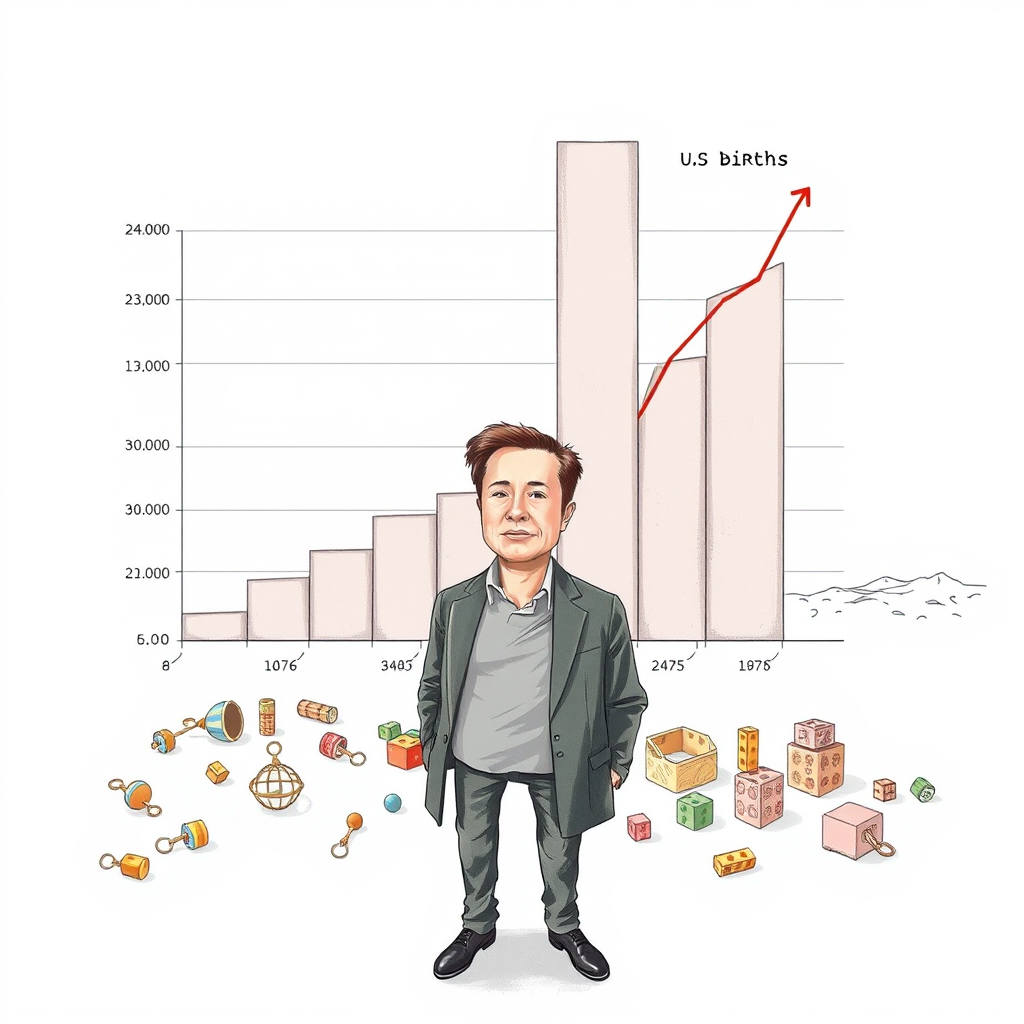Elon Musk's Baby Plan: Bad Math?

A Washington Post columnist is questioning Elon Musk’s numerical abilities, framing them as particularly concerning given his recent role advising the government on efficiency and cost-cutting. David Von Drehle, in a recent opinion piece, argues that Musk’s widely reported ambition to have a large number of children – reportedly driven by a belief in averting a demographic crisis – reveals a significant disconnect from reality.
Von Drehle cites a Wall Street Journal report detailing Musk’s desire to “populate the planet,” leading him to explore the use of surrogates to achieve a substantial increase in offspring. The columnist characterizes this pursuit, and the scale Musk envisions, as demonstrably flawed when subjected to basic mathematical analysis.
Von Drehle performs a calculation, positing that even a highly productive surrogate operation – generating ten children per day until Musk reaches age 80 – would yield fewer than 95,000 babies. This, he points out, is significantly less than the approximately 105,000 births expected in the United States between midnight tonight and 7 a.m. tomorrow.
The columnist doesn’t limit his critique to Musk’s reproductive ambitions. He also references Musk’s well-known plans for Martian colonization, suggesting a broader pattern of flawed understanding regarding scale and quantity.
However, Von Drehle emphasizes that Musk’s “innumeracy” would be a private matter were it not for his involvement with the Department of Government Efficiency. He highlights the significant discrepancy between Musk’s initial promise of $2 trillion in federal savings and the current projected savings of $150 billion – a difference of over thirteen times the original estimate. This, Von Drehle argues, demonstrates a concerning inability to accurately assess and manage large figures, making his role in government efficiency particularly problematic.
Ultimately, Von Drehle concludes that Musk’s pronouncements “just don’t add up,” and his lack of mathematical acumen is a legitimate cause for concern, especially given his increasing influence in governmental affairs. The piece serves as a pointed critique, suggesting that while Musk may be a visionary entrepreneur, his grasp of basic arithmetic is surprisingly weak and potentially detrimental to his current endeavors.